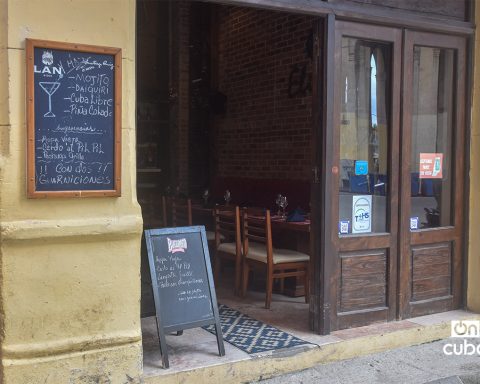Havana Cuba. — Cuban singer-songwriter Tony Ávila knows how to bathe and put away his clothes, as an old saying goes. Some of his compositions of social criticism, such as my house.cu, Timbirichiand The team of oxenamong others, that have been incorporated into the soundtrack of the continuity regime, due to their ambiguity, could be classified as the left-handed sound of Canel’s bolero or sucu-sucu tapiñao.
Although Tony Ávila’s songs address the current Cuban reality from a critical perspective, they do not stop emphasizing in their texts that they are written from “within the revolution”, in addition to the fact that their author does not stop insisting on his identity, love for their ancestors, their orishas and the customs of the country.
Ask for changes in Cuba, as Tony Ávila does in my house.cu, is dangerous for any inhabitant of the country even from an allusive image. It is enough to remember that those who have dared to ask for changes from political activism or human rights by displaying the word “damn” on a pullover, a backpack or a rubber wristband, have been harassed and detained by the National Revolutionary Police. (PNR) under the orders of State Security, regardless of whether what they requested was a change of government or partial reforms in Cuban society.
But the skilled troubadour calls for changes based on the Gatopardian formula: changing everything in the house (Cuba) so that everything remains the same.
The issue of the timbiriches —which is what we call in Cuba those small private commercial establishments that were demonized and condemned by Fidel Castro to disappear forever from the face of the Island when he declared in his speech on March 13, 1968, “no we made a revolution to create timbiriches”— the singer-songwriter approaches it from popular wit, irony and his well-achieved humorous vision, a formula that places him in the comfortable position of getting along with God and the devil.
In his most recent musical composition, the yokeTony Ávila does not stop resorting to similar allusive and tropological resources when criticizing in a tone and style that does not show clearly if he does it from his commitment to “the revolution”.
although in the yoke the singer-songwriter reveals the economic and social stagnation in which the country finds itself by pointing out that one of the oxen “walks forward and the other backwards” and sentences that this is “ploughing in the sea”, he does not stop insisting that both He inherited the farm (the country) and the oxen (the government, officials) from his father and his predecessors, so continuity must be maintained while continuing to seek a better situation.
It’s not that I’m interested in whether the troubadour sympathizes with the regime or not. I applaud the quality of his texts, his effective irony and his distancing from the mediocrity shown by some of his fellow apologists for Castroism in the worst style of Raul TorresArnaldo Rodríguez (the accelerated mulatto) or the Buena Fe duo, who was critical in their first songs and ended up becoming a propagandist and spokesperson for the regime.
In my opinion and way of seeing things, the obvious ambiguity in the topics addressed by Tony Ávila does not diminish the qualitative merit of the singer-songwriter’s texts or discredit his professionalism or his right to see things from his own vision, as long as it reflects the reality.
If Tony Ávila is a communist, a Freemason, a neoliberal or abakuá it’s your problem. My thing, as a follower of his songs and those of other singer-songwriters, is to perceive the authenticity of the work, decode the message, laugh and thank him, because “in this world there has to be everything”, as he assures in one of his most popular songs.
OPINION ARTICLE
The opinions expressed in this article are the sole responsibility of the person who issues them and do not necessarily represent the opinion of CubaNet.















